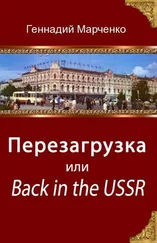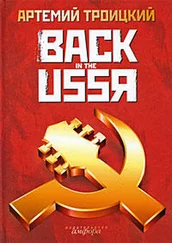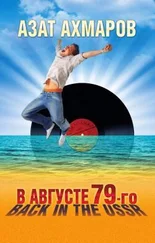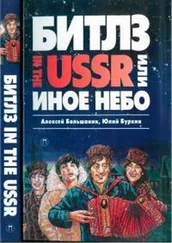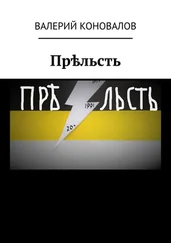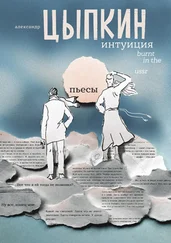The local Cossacks treat us cautiously at first. Like all country people they do not broadcast their scandals to strangers. I soon notice they steal everything they can carry. At five in the morning they stumble out of their huts, stuffing empty bags into their pockets. They pile into buses that roar off down the sawdust-strewn road. In the evenings they return with bags full of feed, corncobs, or what ever else they’ve been able to lay their hands on. They say that a wife won’t serve her husband dinner unless he brings at least a couple of planks or a piece of fencing back from work with him.
Looking at me sympathetically, one of the Cossack women sighs: “Oh, you poor man!”
“Why do you say that?”
“How d’you survive with a leg like yours?”
“I get by, always have and always will.”
“But you can’t ride a bicycle.”
“Why the hell would I want to do that?”
“But you can’t carry much away on foot!”
“But I don’t need anything.”
She gapes at me as though I was a simpleton. Later I learn that the first thing any peasant does is buy himself a bicycle. Then he goes to the driver of a combine harvester, slips him three roubles and fills up a bag of cut corn-cobs. Even one sack is hard to carry over the shoulder, but two or three can be hung from a bike. He sells the corn in the market for 15 roubles, making the bicycle a machine for printing money. If he does well he uses his profits to buy a motorbike with a side-car which enables him to steal a lot more.
They say that if you stick a shaft in the Kuban soil in spring you’ll have a cart growing by autumn. But this fertile agricultural region is going to waste because of the collective farm system. The more intelligent peasants leave the farm for the towns; the more artful join the Party and sit at conferences where they assure each other that everything is under control. The simpler people stay put and drink everything they can lay their hands on.
It is not true that people only work for money. If someone is paid to dig a hole every day and fill it in again he might work for a while but in the end he’ll rebel. That is why all our years of communism have produced only 200 million thieves and drunkards.
I sleep in a five-room hut with four other single down-and-outs, plus three families. One of these consists of a couple of drug addicts that we nicknamed Codeine and Codeina. This pair wander around the farm like somnambulists. They have a baby who sleeps all the time, probably addicted through its mother’s milk. The couple are supposed to work in the chicken sheds. At night when the birds are blind Codeina grabs half a dozen, binds their beaks with thread and takes them off to Slavyansk to trade for pills with pharmacists.
Codeine takes alternate shifts with me as a night watchman. He often comes over to play cards with us and drink chefir. He gives out pills to those he trusts. The codeine makes us itch and scratch ourselves compulsively.
Amongst us is a young man who is hiding out on the farm for some reason — you don’t ask why. Born a Carpathian peasant, he understands everything that concerns agriculture; as regards anything else, he’s as thick as a tree stump. Seeing us scratch ourselves, he goes into the next room and painstakingly examines his clothes for lice.
* * *
I wake up after a long card session and stumble out of the hut. Bumping into Klava, a neighbour from another hut, I ask her the time.
“Eight,” she replies.
“How come?” I’m surprised. The sun is already high in the sky.
“With me it’s always eight o’clock,” Klava bellows, turning her back to me, bending over and throwing up her skirts. Between her bare buttocks she presents me with two holes, one above the other like the figure eight.
Every day Klava and her husband battle each other with pitchforks and mallets. It’s amazing that neither manages to kill the other. When drunk Klava bursts into our rooms, throws off our blankets and tries to climb onto one of us. I keep a hoe by my bed to drive her away. When the lads reject her advances she stands outside cursing and throwing stones at our windows.
As a Heroine Mother of the USSR Klava doesn’t have to work. Her husband turns up in the fields now and again, just to see what he can steal. The couple have countless children. The little ones crawl around the farm, putting everything from apricots to dog shit in their mouths.
Still, I’m in no position to judge my neighbours. I drink every day. Samogon is as copious as the waters of the Volga. The local peasants distil it from tobacco. In the morning it makes your head ache unbearably, so you have to take a hair-of-the-dog immediately.
I feel as though I’m being sucked into quicksand. A little while longer and I’ll never be able to tear myself away from Red Shaft Collective Farm. My pay is better than it was in any chemical factory and there’s not much work to do. I enjoy plentiful food, lots to drink and girls as sweet and strong as apples.
The girls came to us from the Cossack village of Petrovka that lies twelve kilometres to the south. They have their fun with us away from the eyes of their fathers and brothers. In their community they count for damn all. Since early childhood they’ve had to work like donkeys. The breadth and strength of their arms deceives anyone who wants to be deceived. Sometimes in the morning I discover that the girl I’ve spent the night with is not even 16 years old.
I get caught in a storm while bringing in the horses. In a few seconds I’m soaked to the skin. I develop pneumonia. The farm’s doctor wants to take me to hospital, but I refuse.
“You’ll be dead by tonight.”
“All to the good.”
“Do you know what you are saying?”
“Yes. I have to shit, and you’re preventing me.”
She withdraws. Somehow I make it to the bucket my friends have supplied and then I sleep. In the morning I awaken feeling weak but well and flooded with happiness. I have a strong urge to visit my daughter in Estonia.
A week later I leave the collective farm, taking only the watch they award me for my labour. I don’t even collect my wages. Money frightens me.
I want to see Natasha before she forgets who I am, so I set off for Estonia. A tractor drives me into Slavyansk and I walk to the station. The conductor of a westbound express is happy to give me a berth in exchange for my Red Shaft watch. I travel as far as Rostov; after that I make my way northwards on local trains, keeping an eye on schoolboys who always know when the conductor is on his way. When the train halts and they jump off I limp along after them, climbing into carriages that have already been checked. All the same I’m caught a few times and put off the train. From Rostov I go to Taganrog, and then across Ukraine through the Donbass and back into Russia, through Belgorod, Kursk, Oryol and Tula.
The whole way I keep as sober as glass and on constant lookout for the police. My jacket is only distinguishable from a convict’s by its collar, my shoes are falling apart and I sprout a beard. I have only to step into a waiting room for the attention of all uniforms to fasten upon me like a magnet. In Tula I am accosted by a guardian of law and order: “Where are you going?”.
“Home.”
“And where’s ‘home’?”
“The collective farm.”
“Which collective farm would that be?”
“What d’you mean ‘which’?” I look at him with the eyes of Saint Francis. “Ours!”
I tell myself not to overdo it, for the policeman probably left the collective farm himself not so long ago.
“And where is your farm?” he spits out the words like pieces of shit from his mouth.
Читать дальше
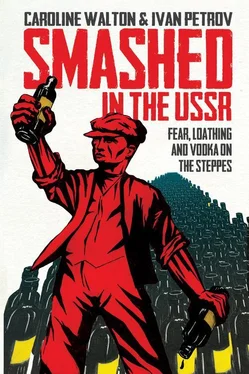
![Геннадий Марченко - Перезагрузка или Back in the Ussr. Книга 1. [СИ]](/books/53319/gennadij-marchenko-perezagruzka-ili-back-in-the-uss-thumb.webp)
